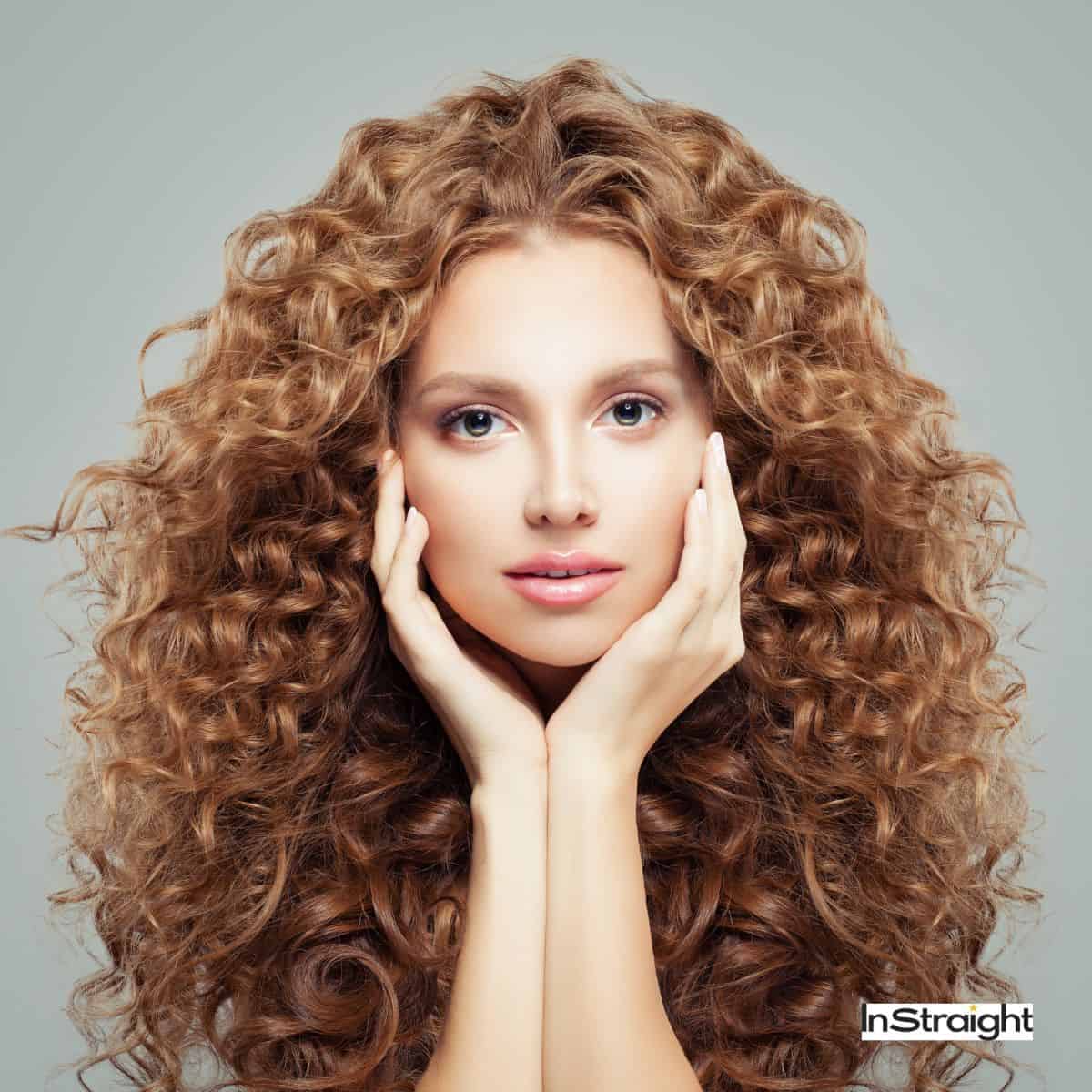Keratin is often confused with creatine. Primarily because of the almost similar pronunciation.
Both substances are essential in the human body but differ in significant ways.
Read on for a comprehensive guide on keratin vs. creatine.
CHECK: Best Keratin Treatment Flat Iron
Key differences Between Creatine and Keratin
While both creatine and keratin are important hair components, they have some key differences.
| KERATIN | CREATINE |
| Keratin is an insoluble protein that forms fibrous structures like hair, nails, feathers, hooves, horns, claws, scales, beaks, bristles, wings, quills, and so on. | CREATINE IS A 2-(carbamimidoyl-methyl- amino)acetic acid amino acid that occurs naturally in vertebrates. |
| Keratin has a three-dimensional structure. | Creatine is a chemical molecule with the formula (H2N)(HN)CN(CH3)CH2CO2H. |
| Keratin is a naturally occurring protein found in hair, nails, and the skin. | Creatine is a natural substance produced by the body that can be obtained through food sources like meats and fish. |
| Keratins are present in animals but not very abundant in plants. They can be found in insects, reptiles, birds, fish, amphibians, and mammals. | Creatine is present in vertebrates, particularly in muscle and brain tissue, where it aids in the recycling of adenosine triphosphate (ATP), the cell’s energy currency. |
What is Creatine?
Creatine is a naturally produced muscular derivative of glycine and arginine amino acids [1].
Stored as phosphocreatine in skeletal muscles, it provides energy to your cells. It is made naturally by your liver, pancreas, and kidneys. Eating red meat and seafood may also get creatine from your diet.
Benefits of Creatine
Considering creatine has incredible smoothing effects on the hair cuticle, it has, in turn, tons of benefits in hair care.
The cuticle is the outer layer that prevents the cell membrane and cortex from drying out or losing melanin. It’s also the section of the hair shaft that causes tangling and dullness.
When the cuticle tears and breaks, the hair tangles on each other, making it harder to comb. Dry hair is frequently caused by damaged cuticles that cannot hold moisture in the cell membrane.
And this is why creatine is vital for healthy, lustrous hair.
Other benefits of creatine include:
- Enhances athletic performance
- Increased body mass
- Repairing harm caused by an injury
- Creatine may benefit those with muscular dystrophy since it helps develop muscle.
- Creatine has been shown to improve memory in various studies.
Creatine is used as a dietary supplement for its ability to increase the amount of ATP available to cells, which can be beneficial for athletes and others who need more energy than normal. [2]
READ MORE: Keratin Vs Collagen
Side effects of Creatine
Creatine is not inherently dangerous; however, it can cause serious health issues if taken in large amounts.
Although most healthy individuals may take it without issue, creatine can have adverse side effects in rare situations, mainly when used in excess [3]. Possible side effects include:
- Stomach discomfort, nausea
- Diarrhea
- Rapid Weight Gain
- cramping muscles
Check out this video to learn more.
What is Keratin?
Keratin is a structural protein found in human hair, nails, and skin. It is responsible for providing strength and elasticity to these tissues [4].
Keratins are classified into two types: -keratins and tougher -keratins. They are also categorized as scleroproteins or albuminoids. Keratin contains sulfur and is insoluble in water.
Because keratin is the structural building component of your hair, keratin supplements, products, and treatments can help strengthen and improve the appearance of your hair.
Benefits of Keratin
Keratin is found naturally in hair, and this component gives our hair its shine. But constant exposure to external influences and aging deplete the protein. Causing your hair to be dull and brittle.
Some of the critical benefits of keratin include:
- They can help you achieve healthier, stronger hair.
- Makes hair shinier and straighter
- Tames frizz and curly hair
- Makes hair easier to manage
- Shields hair from the effects of sun and environmental factors
- Also, help prevent breakage and damage to your hair.
Watch this video to learn more about Keratin treatment.
Conclusion
Keratin is more commonly known as a protein found in hair, while creatine is a naturally occurring compound in meat, fish, and other foods.
However, both substances play an essential role in the optimal health of the human body.
References:
- 1. Balsom PD, Söderlund K, Ekblom B. Creatine in Humans with Special Reference to Creatine Supplementation. Sports Medicine. 1994;18(4):268-280. doi:10.2165/00007256-199418040-00005
- 2. Brudnak MA. Creatine: are the benefits worth the risk? Toxicology letters. 2004;150(1):123-130. doi:10.1016/j.toxlet.2004.01.013
- 3. DIAL : download document. dial.uclouvain.be. Accessed August 26, 2022. https://dial.uclouvain.be/downloader/downloader.php?pid=boreal:23119&datastream=PDF_01
- 4. Powell BC, Rogers GE. The role of keratin proteins and their genes in the growth, structure and properties of hair. EXS. 1997;78:59-148. doi:10.1007/978-3-0348-9223-0_3
- About the Author
- Latest Posts
Edith is a self-made entrepreneur with a keen business sense that others admire and a total “can-do” attitude. She’s always coming up with new ideas to anticipate her readers’ needs and help solve all their toughest beauty and skincare problems. You can find more about her Here.
FOLLOW HER on Linkedin and FACEBOOK and ThoseGraces Beauty Blog

